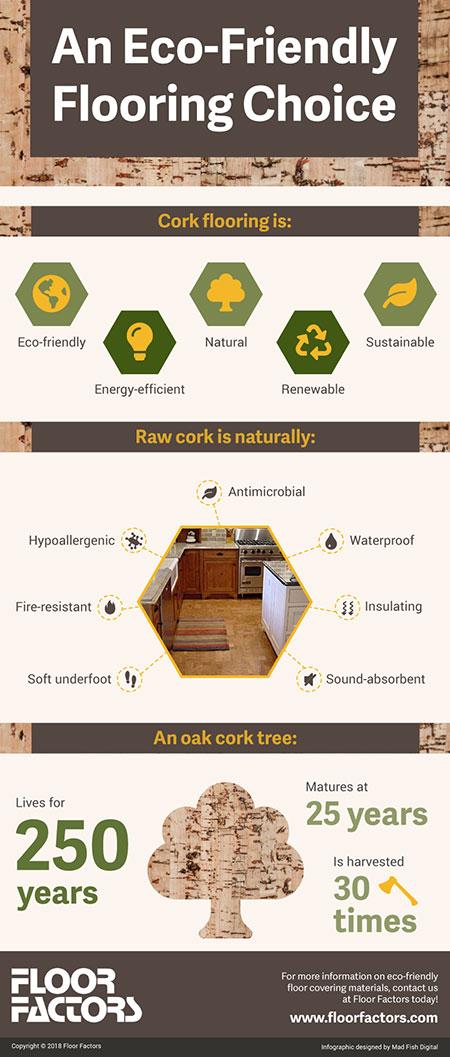
The countless benefits of cork floors have home and business owners alike opting for this versatile floor covering material. The material is naturally insulating, sound-absorbent, and extremely elastic. And believe it or not, cork floors are easier to maintain that you may think. Keep reading to learn about care and maintenance for cork flooring.
How to Maintain Cork Floors
To increase the lifespan of cork flooring, the material can be protected by placing floor mats or area rugs both inside and outside of entrances. This will cut down on the amount of dirt and debris that is tracked onto the floors. Additionally, applying adhesive felt pads to furniture will prevent permanent denting and punctures. Try to keep the surface of your floors free of course substances such as grit, sand, and cinders. Abrasive debris can wear down the sealant of cork floor coverings. Direct sunlight may also cause cork to fade, but certain window treatments can be used to prevent this.
Moisture & Cork Floors
Cork floors will last longer if they don’t get wet. Bathrooms, laundry rooms, and basements that haven’t been waterproofed are not ideal for cork flooring. It’s important to prevent your flooring from coming into contact with excessive moisture.
Before installing glue-down cork floor coverings, your subfloor and drywall should be tested to ensure moisture percentages don’t exceed the manufacturer’s recommendations. If substantial moisture is present, a vapor barrier should be used in the installation.
At Floor Factors, we recommend Wicanders cork flooring. Why Wicanders? Their cork floors are uniquely engineered with state-of-the-art technology, are beautiful, comfortable, eco-friendly and durable.
How to Clean Cork Floors
The primary component of maintaining cork floors is regular and proper cleaning. So how do you clean a cork floor? Frequent sweeping will help to remove abrasive particles and prevent scratching. We recommend sweeping or vacuuming cork floors at least once per week. Dusting or mopping in between vacuuming will eliminate dirt and grit that can scratch your floors. Keep in mind that only damp mops should be used on cork flooring. Thoroughly wring out your mop before cleaning, and never immerse the surface of your floors in water to clean them. Allow your floors to air dry or use a dry cloth or towel to absorb excess moisture.
Spills should be cleaned immediately from cork floors with a damp cloth. Promptly blot spills from cork to prevent liquid from penetrating the sealant and entering the cracks between the tiles or planks. Mats can be used in rooms with sinks to catch spills and splatters. Just make sure any mats used on cork flooring are made from a breathable material as rubber mats can trap moisture underneath and damage the cork.
On occasion, a wood floor cleaner such as Bona® Hardwood can be used on cork floor coverings. Do not spray the floor cleaner directly onto the cork material. Instead, apply the cleaning product to a mop head and gently polish your floors. For cork flooring, ammonia-based or harsh abrasive chemical cleaners should be avoided. Most mild detergents and neutral floor cleaners are acceptable for cork. Be sure to always follow the directions on the bottle. Floor Factors carries recommended floor cleaners and polishes in our Portland Showroom.
Cork Flooring at Floor Factors in Portland
At Floor Factors, we are committed to providing our customers with the best flooring products and services in Portland and the surrounding areas. We work with high-quality cork flooring suppliers and offer full-service contracting for our customers including design consulting, demolition, and installation. Contact the Floor Factors team to learn more about cork floor maintenance best practices and our extensive floor covering options.

